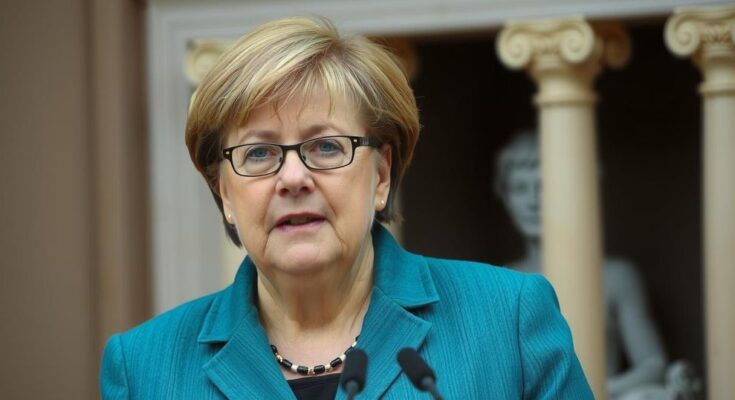German President Frank-Walter Steinmeier has dissolved parliament and announced an early election for February 23 following the collapse of Chancellor Olaf Scholz’s government. Rising concerns over security from a recent attack at a Christmas market have fueled debates on immigration and public safety. Amid significant electoral competition, the CDU/CSU leads in polls, while the SPD struggles to gain traction. The upcoming election is set against a backdrop of economic and geopolitical challenges facing the new government.
On Friday, German President Frank-Walter Steinmeier officially dissolved the parliament, confirming the anticipated early general election date of February 23. This decision follows the recent collapse of Chancellor Olaf Scholz’s government, rooted in internal discord regarding strategies to rejuvenate Germany’s economy. Moreover, a tragic car-ramming incident at a Christmas market has intensified discussions surrounding national security and immigration policies.
In addressing the forthcoming electoral campaign, Steinmeier stressed the importance of political stability and urged all parties to engage in a respectful and decent discourse. The election is crucial as it occurs amidst rising tensions post-attack and heightened concerns over public safety, fueled by the arrest of a Saudi doctor with alleged “Islamophobic” views at the attack site. Steinmeier aims to ensure an election free from hatred and intimidation, highlighting the detrimental effects of foreign influence, particularly on social media platforms.
Currently, preliminary polls indicate a strong lead for the conservative CDU/CSU alliance at approximately 32%, followed by the far-right Alternative for Germany (AfD) at 19%, while Scholz’s Social Democrats languish at a mere 15%. Steinmeier emphasized the significant challenges confronting the next government, including economic instability, geopolitical conflicts, and social debates on immigration and climate change.
Both the CDU and SPD have committed to supporting Ukraine amid its ongoing conflict with Russia and to increasing defense spending. Although differences exist regarding military aid, both parties recognize the need for revitalizing the “Made in Germany” initiative and investing in infrastructure improvements. In matters of climate policy, each party has distinct approaches, with the SPD promoting renewable energy and the CDU reconsidering past decisions about nuclear power plants.
As the political landscape continues to evolve, this election may serve as a pivotal moment for Germany as it seeks to navigate complex domestic and international challenges.
The dissolution of the German parliament and the calling of early elections have significant implications for the country’s political landscape. The recent downfall of Chancellor Olaf Scholz’s coalition government underscored internal strife regarding economic revitalization strategies, exacerbated by recent security incidents that have reignited debates over immigration and public safety. Steinmeier’s insistence on a respectful campaign reflects an ongoing concern about societal divisions and the potential influence of external forces on domestic politics, particularly through digital platforms. The looming elections take place against the backdrop of pressing national issues such as economic instability, defense commitments, and climate initiatives—all critical for potential incoming leaders to address adequately. The positioning of various political parties also illustrates the shifting tides within German politics as traditional alliances and voter sentiments evolve following the crisis.
In conclusion, the formal dissolution of parliament by President Steinmeier and the announcement of a February 23 election highlight a critical juncture in German politics. As varied political factions prepare for a significant campaign, underlying issues such as economic recovery, national security, and social cohesion will take center stage. The electorate’s response to these challenges will shape the next government and its policies in an increasingly complex global landscape.
Original Source: www.barrons.com




